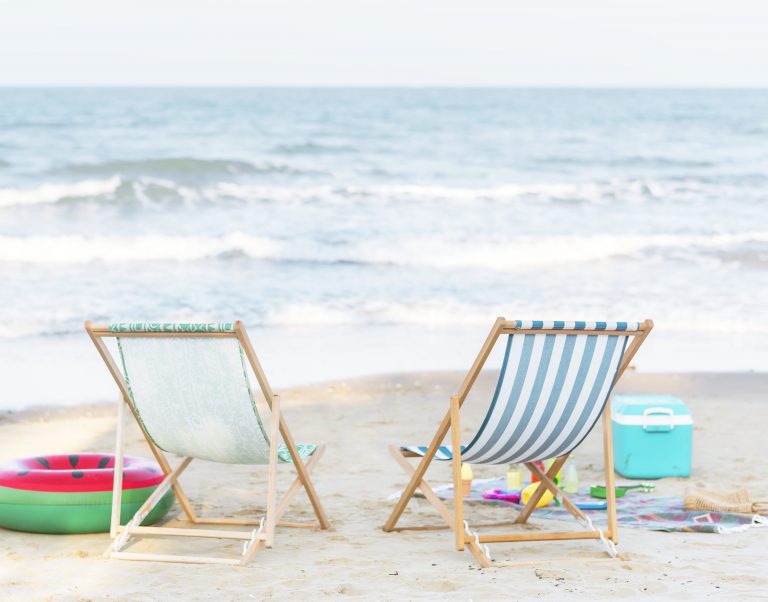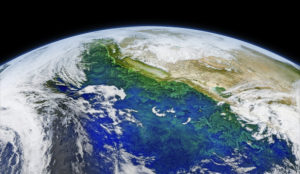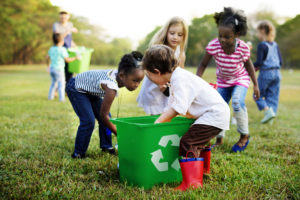As the warmer weather rolls in, our favorite summer essentials become part of our everyday routine once again.
Sunscreen for the pool, chips for the neighborhood barbeque and cleaning supplies for sticky popsicle drips on the kitchen counter. Our tried and true essentials make summer easier to enjoy — and easier to ensure your environmental footprint this summer is nothing more than a footprint left behind in the sand.
The consumer packaged goods (CPG) industry has been investing heavily in more sustainable and recyclable packaging, and actively developing solutions that work for both consumers and the environment. Seventy-four percent of Americans consider themselves extremely or very concerned about the environment and 75% say they have changed their behavior in recent years to be more environmentally conscious.
Our world today is forward thinking and fast paced, and consumers expect products and experiences that keep up. The CPG industry is adapting quickly to these needs and delivering products that are both convenient and cognizant of the environment.
All of the 25 largest CPG companies have made commitments to increasing recyclable content and minimizing packaging or reusing material. Eighty percent have gone a step further by committing to producing completely recyclable, reusable or compostable packaging by 2030. CPG companies make up a large part of The Ellen MacArthur Foundation’s New Plastics Economy Global Commitment: Coca-Cola, Colgate-Palmolive, Henkel, Kellogg, McCormick, PepsiCo and Reckitt, just to name a few, have all taken the pledge to help eradicate plastic pollution.
To meet these goals, CPG companies are rigorously optimizing their product packaging, utilizing recycled materials and reducing the amount of packaging when possible:
- Kellogg reduced the weight of cereal box liners by 17%, eliminating 192,000 pounds of packaging material;
- Clorox’s Glad brand reduced the plastic in its trash bags by 6.5%, the equivalent of 140 million fewer bags per year;
- Ferrero redesigned its Nutella packaging, saving more than 26 tons of excess packaging material; and
- PepsiCo now packs Tostitos in plant-based, compostable bags for food service accounts in the United States.
Companies like General Mills and P&G are utilizing recyclable materials in their packaging, including beach plastic for shampoo bottles and virgin wood fiber that does not contribute to deforestation, respectively. Coca-Cola is investing heavily in recycling technology as part of their “World Without Waste” vision. These global brands are driving change across all industries and meeting consumer wants and needs for the products they use every day.
But sustainability doesn’t just stop at CPG — consumers make a huge difference when it comes to actually recycling and reusing the products they purchase. The problem is, America’s recycling system is just plain confusing, making it increasingly difficult for consumers to navigate our country’s broken system.
When it comes to sustainability, innovation is the name of the game and the CPG industry is working swiftly to meet their commitments to protecting the environment and combating climate change.
CPG companies are stepping up to that challenge as well, helping us all better understand the array of local recycling rules and policies that lead to confusion and high contamination rates. Last summer, PepsiCo and The Recycling Partnership launched the largest-ever residential recycling challenge, aimed at educating and providing resources to 25 million U.S. families on their local recycling rules and how to recycle better and more often.
When it comes to sustainability, innovation is the name of the game and the CPG industry is working swiftly to meet their commitments to protecting the environment and combating climate change. Every company has a vested interest in sustainability and our industry is getting closer to its goals every year.
This summer, research your local recycling rules before breaking out a can of ice-cold beer or a bottle of aloe vera, and enjoy the season confidently, knowing the products in your beach bag are doing their part in helping us achieve a more sustainable world.




